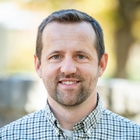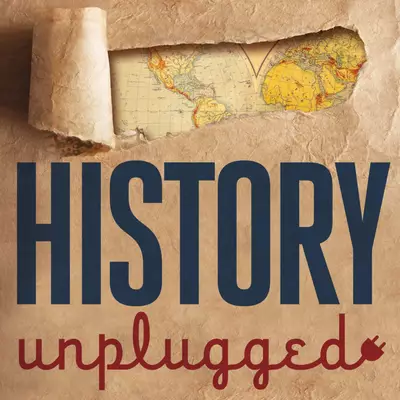Listen on Your Favorite App
The Great Chicago Fire of 1871 and Rebuilding The Windy City Into a World Metropolis
November 28, 2023
00:00
49:38
Listen on Your Favorite App
In October of 1871, Chicagoans knew they were due for the “big one”—a massive, uncontrollable fire that would decimate the city. There hadn’t been a meaningful rain since July, and several big blazes had nearly outstripped the fire department’s scant resources. On October 8, when Kate Leary’s barn caught fire, so began a catastrophe that would forever change the soul of the city.
Leary was a diligent, hardworking Irish woman, no more responsible for the fire than anyone else in the city at that time. But the conflagration that spread from her property quickly overtook the neighborhood, and before too long the floating embers had spread to the far reaches of the city. Families took to the streets with everything they could carry. Grain towers threatened to blow. The Chicago River boiled. Over the course of the next forty-eight hours, Chicago saw the biggest and most destructive disaster the United States had ever endured, and Leary would be its scapegoat.
Out of the ashes rose not just new skyscrapers, tenements, and homes, but also a new political order. The city’s elite saw an opportunity to rebuild on their terms, cracking down on crime and licentiousness and fortifying a business-friendly environment. But the city’s working class recognized a naked power grab that would challenge their traditions, hurt their chances of rebuilding, and move power out of elected officials’ hands and into private interests. As quickly as the firefight ended, another battle for the future of the city began between the town’s business elites and the poor and immigrant working class.
Today’s guest is Scott Berg, author of “The Burning of the World: The Great Chicago Fire and the War for a City’s Soul.” Beginning with the fire’s origin on the property of Irish immigrant Kate Leary, we explore how a simple barn fire brought Chicago to its knees and ushered in a new political order in which immigrants wrested control of the city from the business class and birthed the machine politics for which the city is known today.
Leary was a diligent, hardworking Irish woman, no more responsible for the fire than anyone else in the city at that time. But the conflagration that spread from her property quickly overtook the neighborhood, and before too long the floating embers had spread to the far reaches of the city. Families took to the streets with everything they could carry. Grain towers threatened to blow. The Chicago River boiled. Over the course of the next forty-eight hours, Chicago saw the biggest and most destructive disaster the United States had ever endured, and Leary would be its scapegoat.
Out of the ashes rose not just new skyscrapers, tenements, and homes, but also a new political order. The city’s elite saw an opportunity to rebuild on their terms, cracking down on crime and licentiousness and fortifying a business-friendly environment. But the city’s working class recognized a naked power grab that would challenge their traditions, hurt their chances of rebuilding, and move power out of elected officials’ hands and into private interests. As quickly as the firefight ended, another battle for the future of the city began between the town’s business elites and the poor and immigrant working class.
Today’s guest is Scott Berg, author of “The Burning of the World: The Great Chicago Fire and the War for a City’s Soul.” Beginning with the fire’s origin on the property of Irish immigrant Kate Leary, we explore how a simple barn fire brought Chicago to its knees and ushered in a new political order in which immigrants wrested control of the city from the business class and birthed the machine politics for which the city is known today.
See omnystudio.com/listener for privacy information.
More Episodes
See all episodes
Meet Your Host

Scott Rank is the host of the History Unplugged Podcast and a PhD in history who specialized in the Ottoman Empire and modern Turkey. Before going down the academic route he worked as a journalist in Istanbul. He has written 12 history books on topics ranging from lost Bronze Age civilizations to the Age of Discovery. Some of his books include The Age of Illumination: Science, Technology, and Reason in the Middle Ages and History’s 9 Most Insane Rulers.. Learn more about him by going to scottrankphd.com.
